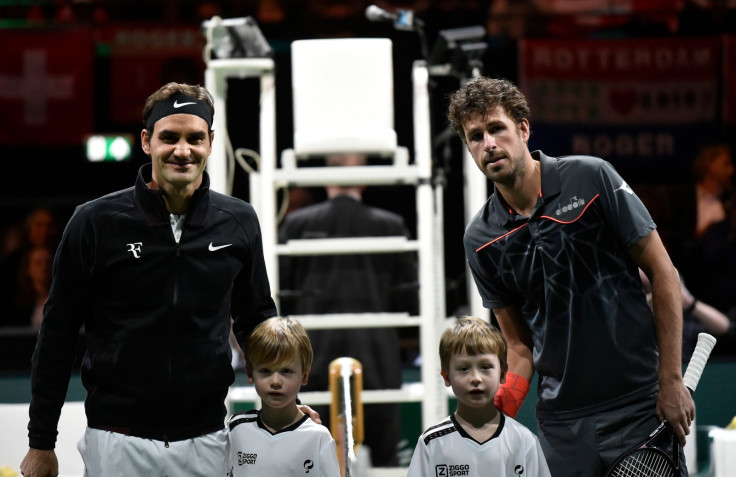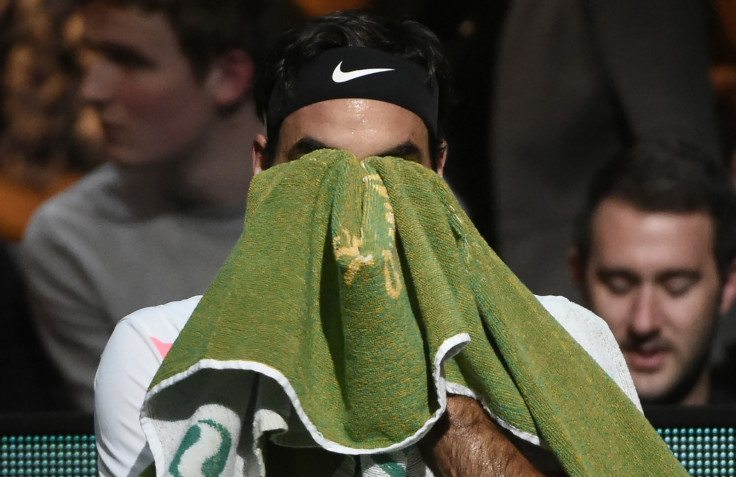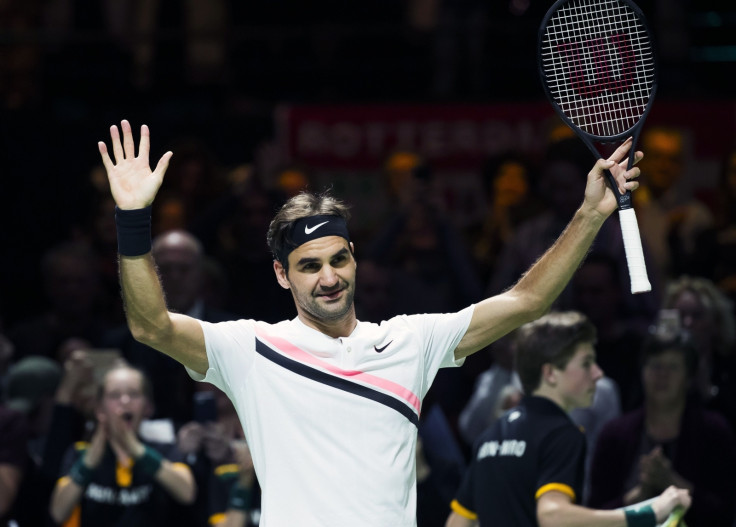Roger Federer becomes oldest world number one ever and replaces Rafael Nadal after Rotterdam win
KEY POINTS
- Twenty-time grand slam champion eclipses Andre Agassi as the oldest No.1 in tennis history.
- The 36-year-old into the semi-finals at the Rotterdam Open after overcoming Hasse in three sets
Roger Federer has become the oldest world number one in tennis history after coming from behind to beat Robin Haase at the Rotterdam Open.
The 36-year-old replaces Rafael Nadal to the top of the ATP rankings for the first time since October 2012 and eclipses Andre Agassi as the most senior player to reach the summit of the sport.
Haase initially appeared to have miss-read the script by taking the opening set but the 20-time grand slam winner ratcheted up the pressure to take the next two to prevail 4-6 6-1 6-1, with the Dutchman clearly struggling with injury and illness.
He will face either Andreas Seppi or Daniil Medvedev in the semi-final on Saturday [16 February] as he pursues his second title of a year in which he has already won a sixth Australian Open.
"What an amazing run it has been," the noticeably emotional Swiss said. "To clinch world number one again really means a lot to me.
"Reaching world number one is the ultimate achievement in our sport. Sometimes you're trying to get there because you're playing so well, other times you try to fight to get back and you wrestle it back from someone who deserved to be there.
"When you're older you feel like you have to put double the work in so this means the most to me in my career. To get there at 36, almost 37, is a dream come try. I can't believe it."
Knowing a 10th win in a row in 2017 would be enough to climb to the top of the ATP standings once again, Federer attempted to make a fast start in-front of a capacity crowd.

Despite having a home favourite to cheer on, it was clear from the outset that the majority of the fans crammed into the Ahoy Rotterdam were backing the evergreen 2014 Davis Cup winner.
Haase saved three break points in his opening service game and looked far from overawed by the occasion, off the back of six previous wins against top 10 players.
A two-time winner on the ATP tour, Haase then broke Federer with a clutch of cross-court passing shots and he served out the opening set as a shock looked on the cards.
The world number 42 had collected two doubles title already this year and was taking that winning mentality into one of the biggest matches of his singles career.
With no margin for error, Federer went ultra-aggressive at the start of the second and the approach paid dividends as he broke for a 3-0 lead, as Haase's level dropped ever-so slightly.
As Hasse's backhand went to pieces Federer claimed a second break and subsequently squared the match, as his opponent began to show signs of a possible back injury.

Notable restricted by the fitness issue and illness - Haase was sick court-side during the second changeover - the 30-year-old was a sitting duck and Federer produced a virtuoso passing shot to claim a break in the decider as the veteran showed his ruthless streak.
Some resolute defending from Federer helped him claim a double break and that was enough to lay the foundations to take him through to the semi-finals, and add another moment of history to an already overflowing CV.
Reaction to the feat was led by Agassi, who was 33 when he reached world number one in April 2003.
36 years 195 days...@RogerFederer continues to raise the bar in our sport. Congratulations on yet another remarkable achievement!!
— Andre Agassi (@AndreAgassi) February 16, 2018
Meanwhile, in the bottom half of the draw, last year's runner-up David Goffin progressed to the last four without having to hit a ball after the withdrawal through illness of Tomas Berdych.
The number four seed will face the man who beat him in the final of the ATP World Tour Finals, Grigor Dimitrov, for a place in the final after the Bulgarian overcame Andrey Rublev 6-3 6-4.























